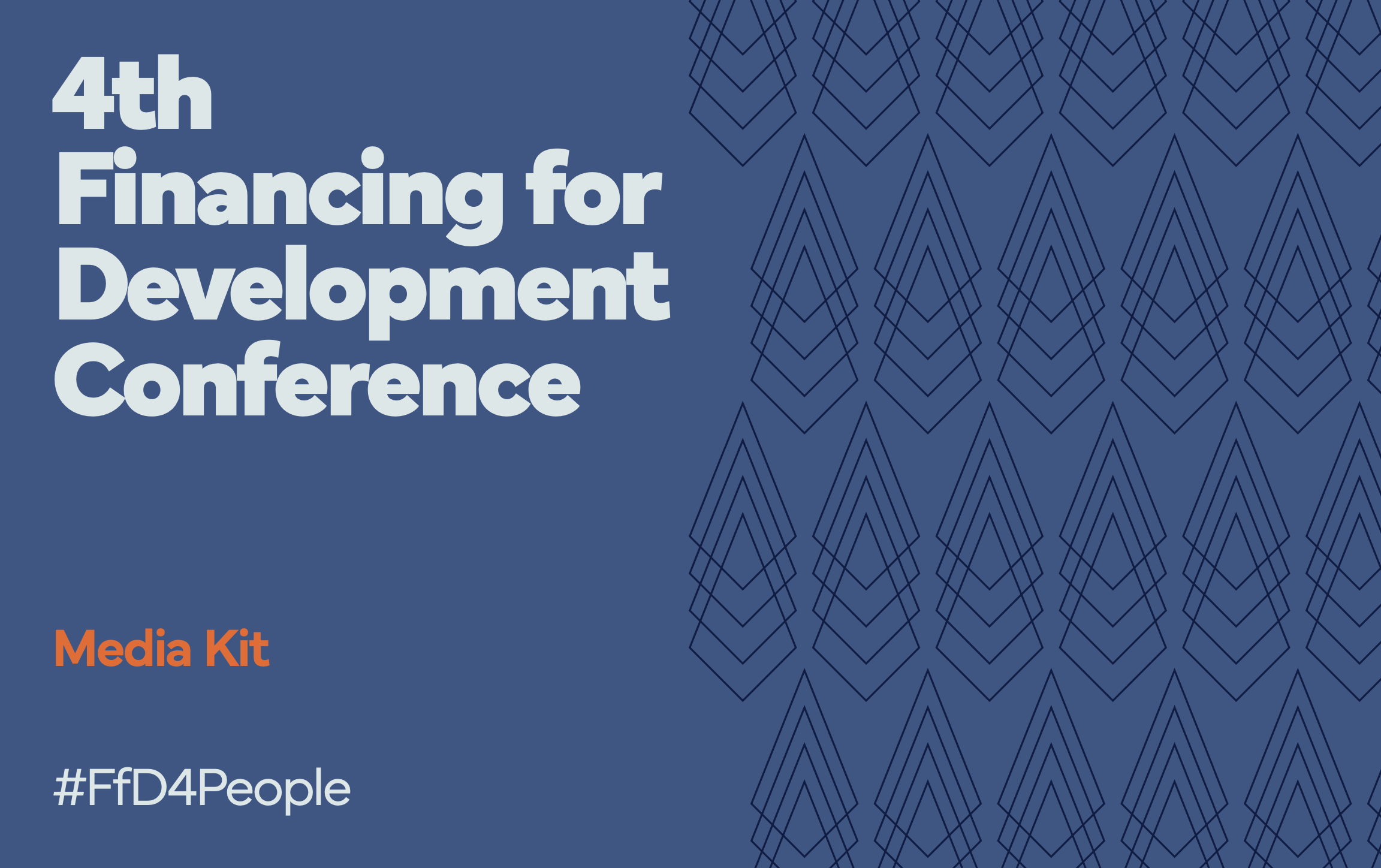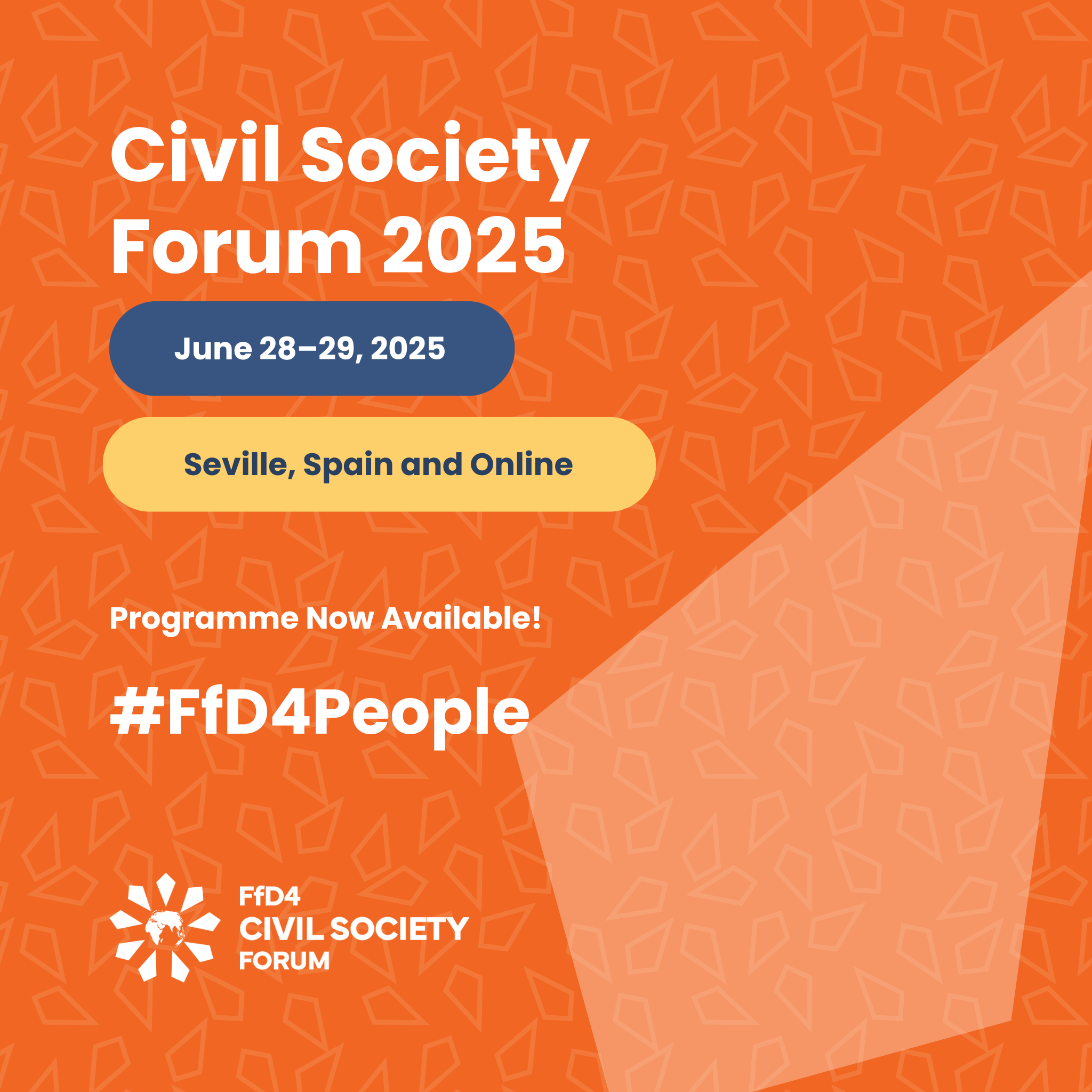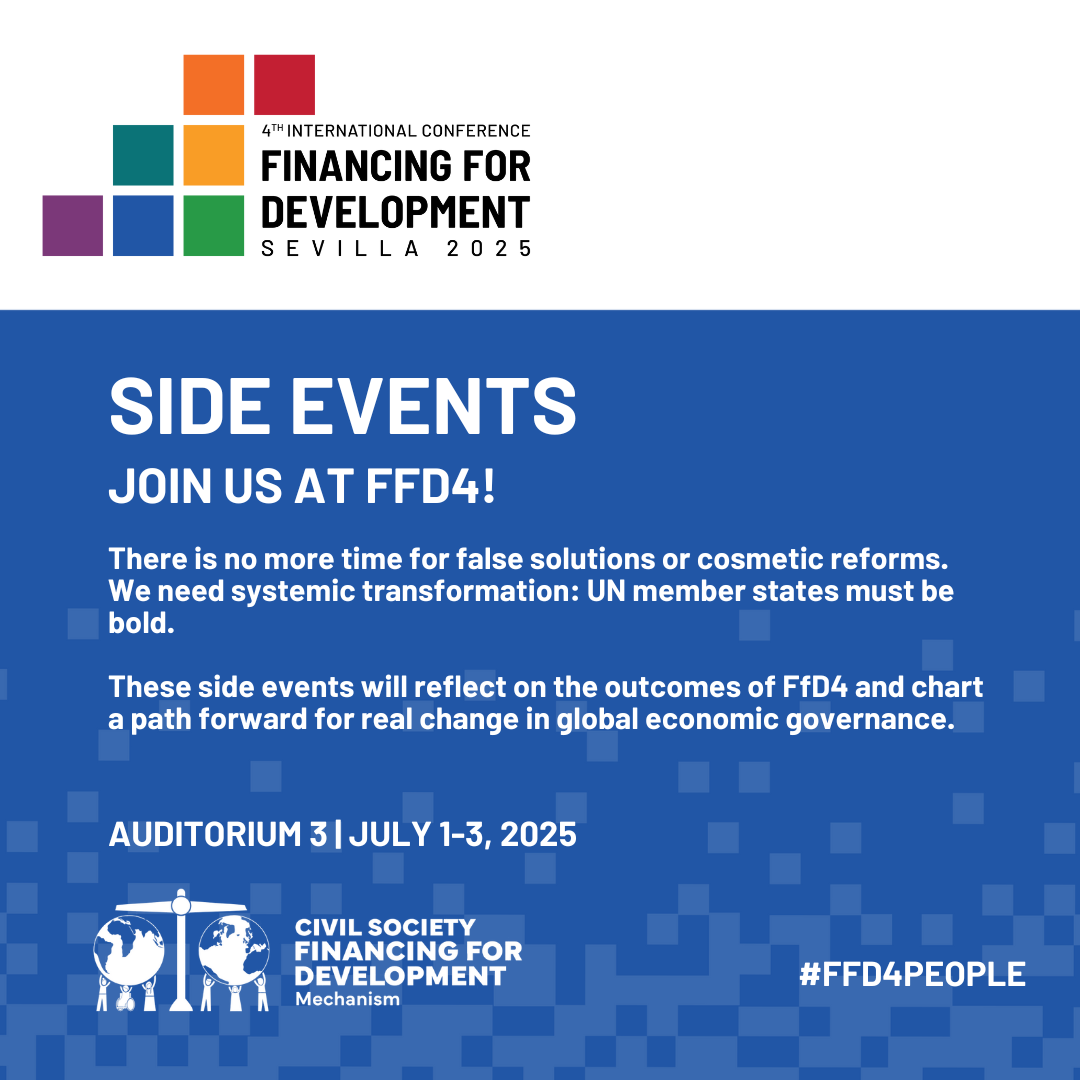
Presentation: Bodo Ellmers (EURODAD) in side-event on Debt and Systemic Issues
What the FfD process can do?
As CSOs we interact with many international organizations and processes: the IMF, the World Bank, the OECD, sometimes the G20, and others. We do appreciate the dialogues at the UN, mainly for two reasons. Firstly, the UN is the only place where we can have fully inclusive and transparent debates on debt issues. Secondly, when we speak with Executive Directors of the IMF, we often feel that financial stability and debt sustainability are an end in itself for them. For us they are means to an end, which is the achievement of development goals and the progressive realization of human rights.
Some people say that the UN is not a good place to discuss debt issues because the UN is not specialized in it and has little capacities. We see this as an advantage. Here we can discuss debt in the broader context of development and human rights.
The Financing for Development process is pretty much a child of debt crises. It was triggered by the Asian crisis of 1997, which also affected other regions in the years that followed. Therefore, debt and systemic issues should stand at the centre of the debate.
CSOs found that the outcome of the Addis Ababa conference was weak. We had hoped for more, and we certainly needed more to kick start the SDG implementation. This makes it very important that at least the follow-up process is effective. For us, the follow-up process should not just be about the monitoring and implementation of the Addis agreements. It should develop the agenda further, and also reflect on recent developments since Addis.
Let me name three things that happened since Addis:
Firstly, we have clear signs that a new debt crisis is coming, this time mainly affecting commodity exporters. Commodity prices collapsed, and so did the exchange rates of commodity exporting countries, most of which are indebted in US dollars. We need to
Secondly, and this is a sad event for all of us who fought against vulture funds over the past years, this week Argentina is going to pay almost 10 billion US dollars to the vultures. This battle is lost, now we need to ensure that this is the last battle that we lose.
Since the Argentinian case, the vulture problem has in fact got even worse. Belgium passed a vulture funds law last year. The essence of this law is that vultures can never make more money through litigation than they invested when they bought the junk bonds. This makes the vulture funds‘ business model financially unattractive. But what happened now is that the same vultures that attacked Argentina have started to campaign against the Belgian law. They started litigation at the Belgian Supreme Court. Vulture funds are no longer just a menace to debt restructuring processes, they have become a menace to democracy.
A third development is that the UN General Assembly has adopted the Basic Principles on Sovereign Debt Restructuring Processes. These Principles are a good first step, but they could neither protect Argentina nor Belgium. They are not yet effective, and they need to be strengthened.
I just came back from a conference in Puerto Rico, organized by the public services sector trade unions. Puerto Rico has massively slashed public services, 10000s lost their jobs, money from the public pension fund has been used to pay foreign creditors. One speaker there summarized the situation by saying “Workers have sacrificed a lot. Wall Street has sacrificed nothing.” This situation is not acceptable. It is time for Wall Street to take a haircut.
As CSOs, we don’t just want to have any debt restructuring framework, and creditor coordination is probably not the most important thing for us. We have clear views about what a debt restructuring framework needs to achieve. It needs to put people first, it needs to put development and human rights first. It needs to ensure what the UN‘s Human Rights Council called the Primacy of Human Rights over Debt Service. It is therefore essential that the UN follows up on the work done by the UN General Assembly’s Debt Restructuring Ad Hoc Committee last year, and develops the Basic Principles into an effective debt restructuring framework. The FfD Forum is just one place within the UN where this can happen.
Related Updates


